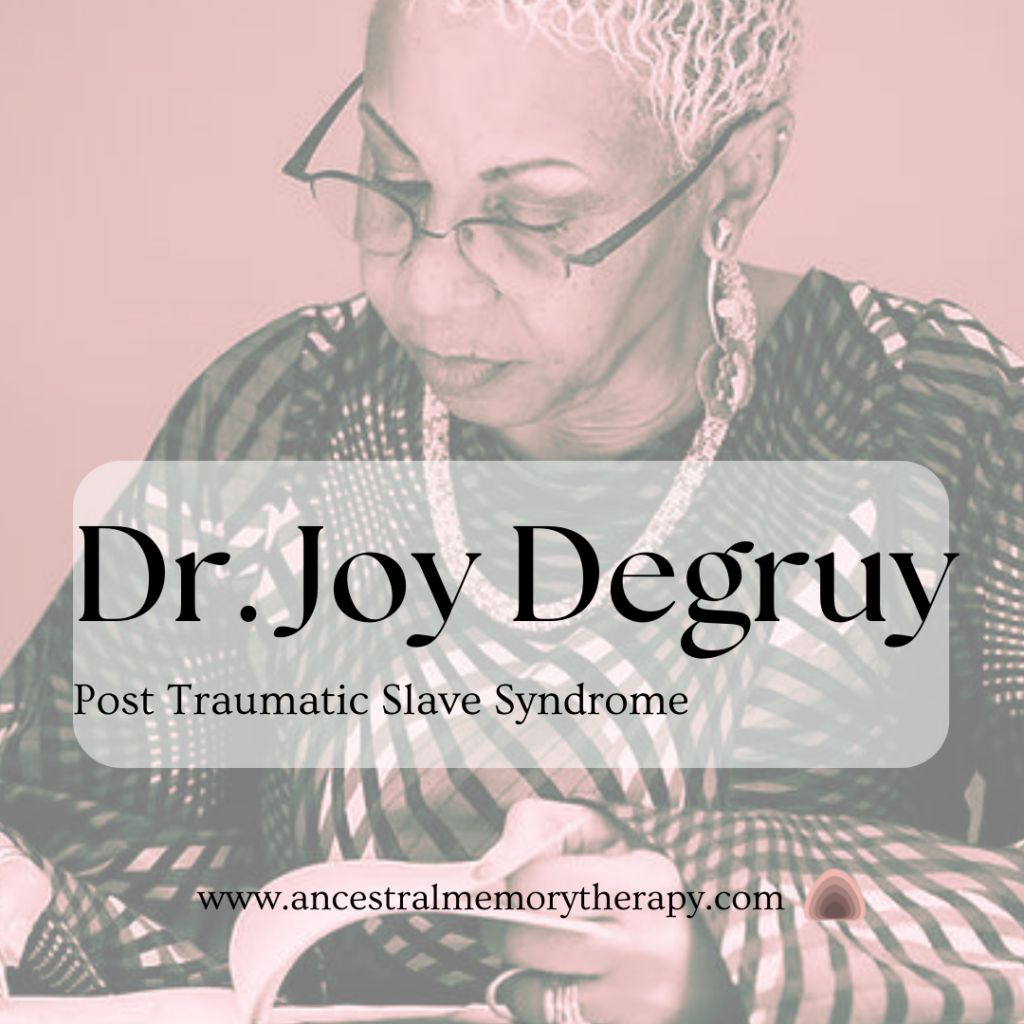The diagnosis “Post Traumatic Slave Syndrome” is not widely accepted. Dr. Joy DeGruy, a researcher and educator, coined the concept of Post Traumatic Slave Syndrome (PTSS) to describe the intergenerational trauma experienced by enslaved Africans in America. According to Dr. DeGruy, PTSS refers to the psychological impact of historical trauma and continued experiences of structural racism, resulting in negative views of self, others, and behaviors. The impact of enslaved ancestors has resulted in the rupture of the family system, culture, languages, and physical health outcomes. PTSS is not an individual deficit but is best described and experienced as collective trauma.
Although PTSS is gaining attention and sparking discussions about the long-lasting effects of the enslavement of Africans, it is important to note that it is not an officially recognized mental health disorder in the Diagnostic and Statistical Manual of Mental Disorders (DSM-5). There are differing views on what it would mean for PTSS to be recognized as a mental health disorder, and it is important to consider that the DSM-5 is an exclusionary institution of psychiatry with a tradition of pathologizing and individualizing mental health concerns. The potential impact of a diagnosis in the context of a nation becoming more anti-Black in its policies and politics must also be considered.
Here are some common symptoms:
- Poor sense of self
- Intrusive thoughts about self and the world regarding Black identity
- Ever present anger and anxiety
- Engaging in high risk behaviour
- Ever present grief
- A felt sense of danger when the environment is safe
- Difficulty connecting with their community
Here are some key practices of healing from PTSS:
- Find community which supports your well being
- Practice redefining Blackness
- Practice engaging in nurturing activities which connects you to your sense of self and community
- Talk to a therapist who understands the impact of Anti-Blackness, enslavement, and colonization
- Draw and/or write stories about your ancestors
- Practice traditional dances and notice how your body responds to the history or movement
- Reconnect with nature and animals to rewrite old narratives and traumas
- Connect with music which reminds your body of your ancestral roots
- Spend time reading and watching West African shows and books
Therapists and community members have a responsibility to recognize the impact of systemic systems which linger today in our thoughts, behaviours, and policies. Anti-Black racism is pervasive and impacts the care we provide for each other, and can exacerbate existing symptoms of PTSS. The reality is anti-Black racism hurts non-Black people for our collective freedom intertwined whether we see it or not.
If you are interested in a workshop in PTS and anti-Black racism, Melissa Taylor is accepting new contracts for 2024.
To read more about Dr. Degruy work, visit her website.




